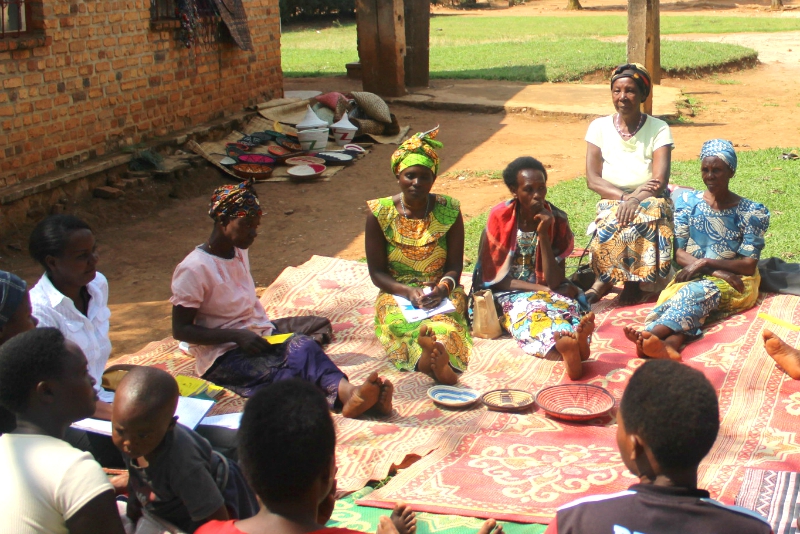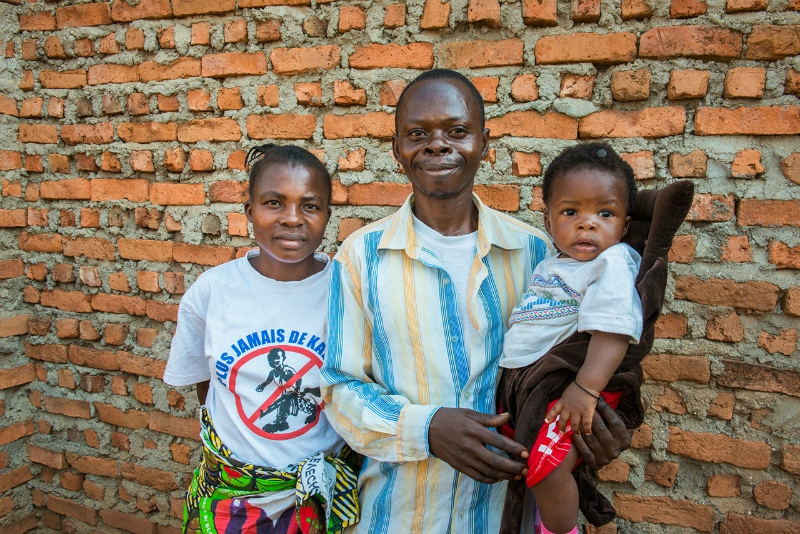Around the world, women in 155 countries face legal restrictions on the economic opportunities available to them, according to the recent World Bank Group’s report Women, Business and the Law 2016, which highlights the challenges women face in the global economy and underscores the need for legal reform.
“These legal barriers are just the beginning of the obstacles women face to accessing economic opportunities,” says Jennifer Windsor, former CEO of Women for Women International. “Establishing women’s equality in the law is critical, but more work is needed to dismantle the social and cultural norms that prevent women from knowing and accessing their rights.”
When Rights are Not Protected, Women Face Additional Barriers
Women for Women International’s recent research on women’s access to land rights in the eastern Democratic Republic of the Congo underscored this challenge. The DRC Constitution guarantees equal property rights to women and men, yet our research revealed how local norms and practices effectively prevent women from accessing these rights, with severe repercussions for their and their families’ well-being.
>> Learn more about our research in women’s access to land rights in the eastern DRC. <<
“When a man dies, the wife has no say with regards to their property,” says Marie Jeanne, a WfWI participant in South Kivu who has struggled to support her children after losing her land.
Several years ago, Marie Jeanne’s brother-in-law tried to claim the property her husband owned. After years of fighting, the brother-in-law killed Marie Jeanne’s husband and took away her land, leaving her just a few meters of the field to grow food. Our research found that national laws that would protect Marie Jeanne’s rights are not enforced in the remote regions of the eastern DRC, and local norms regarding land ownership and inheritance prevent her from reclaiming her property.
For women like Marie Jeanne, being denied their right to land ownership contributes to deepening poverty. Despite the rich, fertile soil in the region, 70 percent of the population lives below the poverty line and does not have enough food. Women produce 75 percent of the food in rural areas – so access to land is needed for both income and food security. Participants of our program have shared how their inability to access land rights limits what they can grow and sell for income, forcing them to decide between feeding their children or paying their school fees.
Failure to Protect Rights Marginalizes Women and Injures Families
In addition to documenting the laws that protect or restrict women’s rights, The Women, Business and Law 2016 report draws attention to the ripple effects of not granting equal rights to women. For example, in economies where women do not control marital property, less than 1 in 5 women have an account at a financial institution, compared to nearly 3 in 5 women in economies where control of marital property is shared. Through our work connecting women to banks and informal sources of savings and credit in sub-Saharan Africa, we know that financial services are critical to helping women access capital to grow their businesses and move out of extreme poverty, and hence restrictive laws limit women’s economic empowerment.

In Rwanda, WfWI graduates have come together to form a Village Savings and Loan Association (VSLA) to create their own source of credit and savings to help them grow their businesses and move out of extreme poverty.
In addition, the report calls out 46 countries that have not enacted laws specifically to protect women from domestic violence, including Afghanistan and South Sudan. Failure to protect women’s most basic right to freedom from violence not only does immeasurable harm to women, but has negative generational effects, and furthers cycles of violence and poverty.
>> Sign up for our newsletter for the latest stories from our programs, blogs, and updates. <<
Engaging Men as Allies and Partners for Empowerment
“Through our programs, women learn about their rights, and those guaranteed by their countries, which is a first-step to enable them to stand up for themselves,” says Windsor. “But we realized that by not engaging men, we were missing a critical opportunity to raise awareness and build support for women’s equality within the community.”

In the Democratic Republic of the Congo, Anna's husband, Mokili, says he developed greater understanding and respect for women's rights through WfWI's men's engagement program. Photo credit: Alison Wright
That’s why we began programs to deepen men’s understanding of women’s rights and enable them to be allies and advocates for change. Since our first outreach to men in Nigeria in 2001, we have worked with more than 8,000 male religious, traditional, and civic leaders, law enforcement, and military members, discussing issues from gender-based violence to women’s economic empowerment. This year, we are expanding our outreach to male relatives of the women in our program sharing the same messages about women’s equality and encouraging them to support their wives, sisters, and daughters as they move forward.
In countries where laws or norms do not protect women’s rights, this kind of integrated approach to building awareness and strengthening local voices is critical to ensure that women can access the full range of opportunities for social and economic empowerment.
>> Read the World Bank Group’s Women, Business and the Law 2016 report. <<
